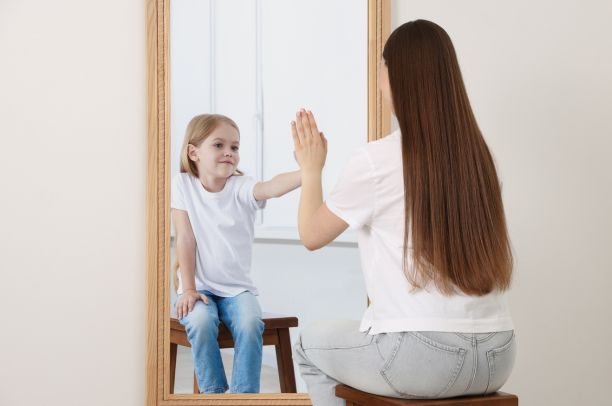Summary: Teen mental health in India is a growing concern, with many adolescents facing stress, sleep deprivation, and emotional challenges. Early signs include mood swings, withdrawal, changes in behavior, and physical symptoms. Parents can help by creating a safe space for open conversations, listening actively, and supporting healthy coping strategies. Timely attention and guidance help teens build resilience, manage stress, and develop emotional strength, laying a foundation for long-term well-being and personal growth.
Teen mental health is fast becoming a national concern in India, with growing evidence pointing toward a youth population burdened by emotional distress, sleep deprivation, and acute academic pressure. In Delhi alone, a recent study revealed that 20% of adolescents are clinically sleep-deprived, and 60% exhibit signs of depression. Nationwide, the problem is even more stark: according to the 2025 Student Well-being Pulse Report, one in five high school students rarely feels calm or motivated, and female students are especially vulnerable to persistent sadness and loneliness. The same report also warned that India saw over 13,000 student suicides in 2022—an average of one life lost every 40 minutes—highlighting the urgent need for systemic intervention.
At a clinical level, comprehensive meta-analyses estimate that 11% of adolescents in India experience suicidal ideation, while 3% report actual suicide attempts or plans. For many families, these numbers aren’t distant—they’re deeply personal, reflective of growing despair affecting children and teens across the country.
These alarming figures underscore one truth: many teens in India are silently struggling—and parents may not know how or when to step in. Recognizing the signs early and sensitively can make a life-changing difference.
Why Teen Mental Health Matters?
Adolescence is a critical stage where teens develop their identity, relationships, and future goals. When mental health struggles go unnoticed, they can impact academics, friendships, and even physical health. About 7.3% of Indian adolescents live with a diagnosable mental health condition, yet most never receive proper treatment.
Ignoring these issues can have serious long-term effects, including substance abuse, self-harm, and chronic mental illness in adulthood. Recent studies reveal a sharp rise in stress, sleep deprivation, and emotional struggles among students, showing how widespread the problem has become. With early intervention through parental support and timely professional guidance teens can develop resilience, healthier coping strategies, and a stronger foundation for their future well-being.
Know When Your Teen Needs Help with Mental Health
Emotional Changes
Teens may show frequent mood swings, irritability, or sudden anger outbursts. Persistent sadness, feelings of hopelessness, or tearfulness can also indicate underlying mental health challenges. Heightened anxiety, excessive worry, or panic episodes are additional emotional signs that something may be wrong.
Behavioral Shifts
A teen struggling with mental health issues may withdraw from family, friends, or social activities they previously enjoyed. They might lose interest in hobbies or extracurriculars, show a sudden drop in academic performance, or even skip school without clear reasons. Such behavioral changes often reflect internal struggles that the teen finds difficult to express.
Physical Symptoms
Mental health issues can manifest physically. Changes in sleep patterns, such as sleeping too much or too little, are common. Appetite fluctuations, unexplained weight gain or loss, and frequent complaints of headaches, stomachaches, or fatigue without a medical cause can also signal distress.
Cognitive and Social Signs
Teens may have difficulty concentrating, making decisions, or completing tasks. They might express negative thoughts about themselves or their life, and experience increased conflicts with peers, teachers, or family members. Social withdrawal or difficulty maintaining relationships can also indicate emotional or psychological strain.
How Parents Can Approach the Situation?
Creating a Safe, Non-Judgmental Space for Conversations
Teens are more likely to open up when they feel safe and understood. Parents should encourage open dialogue without criticizing or dismissing their feelings. Simple gestures like spending time together, asking gentle questions, and showing empathy can make a huge difference.
Listening Actively Instead of Lecturing
Rather than immediately giving advice or solutions, parents should focus on truly listening to their teen. Active listening involves acknowledging their emotions, validating their experiences, and allowing them to express themselves fully. This helps teens feel heard and supported.
Avoiding Stigma Around Therapy or Counseling
Mental health challenges are common, and seeking help should never feel shameful. Parents can normalize therapy by framing it as a positive, proactive step for emotional well-being, sharing examples of others who benefited, or even joining in sessions when appropriate.
When to Seek Professional Support
It’s important to recognize when professional intervention is needed. If a teen shows persistent sadness, withdrawal, drastic behavioral changes, or thoughts of self-harm, parents should reach out to school counselors, psychologists, licensed therapists, or even a certified life coach. Participating in emotional well-being workshops can also provide teens with practical coping strategies and support their mental and emotional growth. Early guidance from these professionals can prevent problems from escalating and help teens develop resilience and healthier coping mechanisms.
Support Your Teen’s Mental Health
Early attention to a teen’s mental health can prevent small issues from becoming serious. Noticing changes in mood, behavior, or daily habits allows parents to offer timely support. Encouraging open conversations helps teens express themselves, manage stress, and develop coping skills. Providing this guidance fosters emotional strength, resilience, and healthier habits, giving teens a solid foundation for overall well-being and long-term personal growth.
Is your teen feeling overwhelmed by stress, low confidence, or constant distractions? Mindspa India offers heal your life workshop for teenagers in Pune that help reduce anxiety, improve focus, and build emotional resilience. Through simple, practical techniques, teens learn how to manage challenges, boost self-esteem, and create a stronger sense of inner calm.
📞 Call +91-93254 06967 today and give your teen the tools to handle life with balance, clarity, and confidence.







